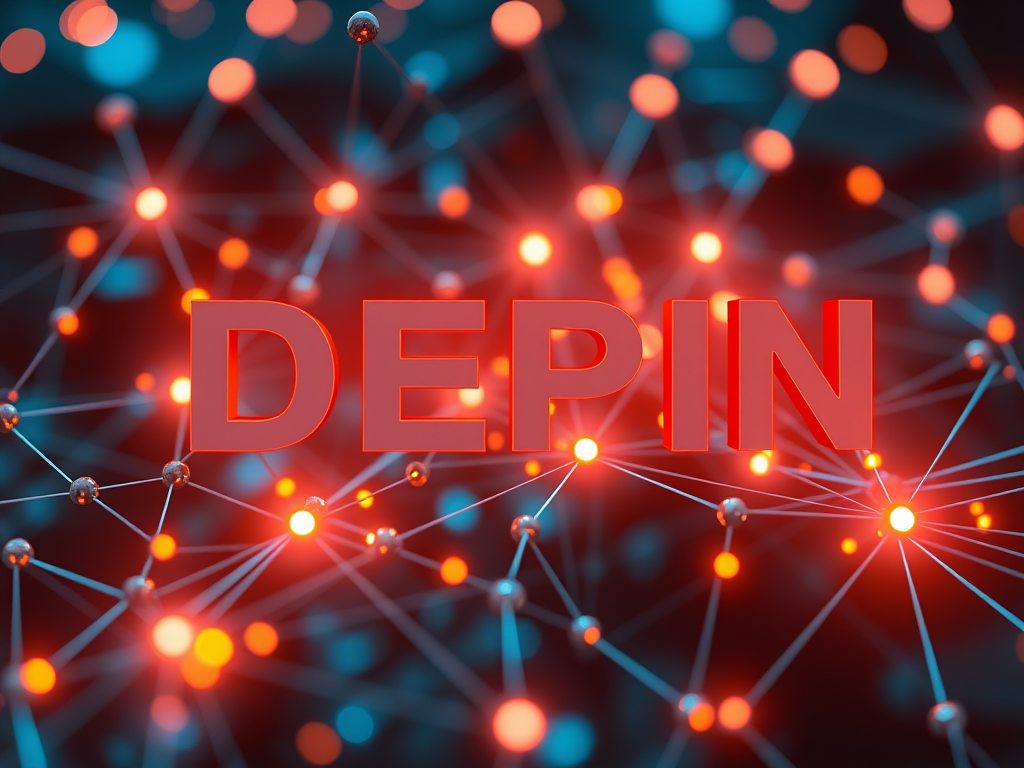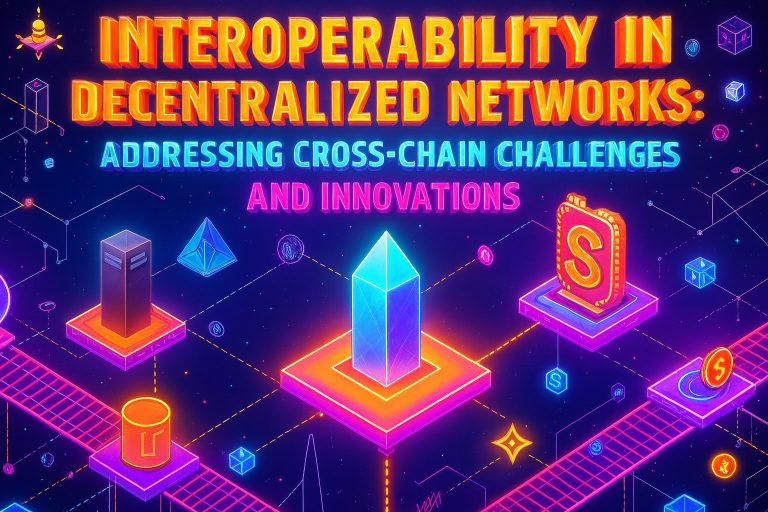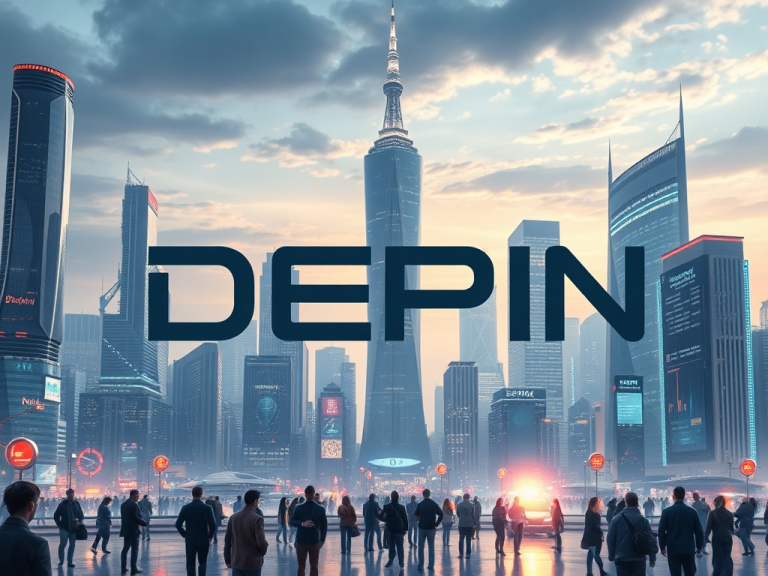
Decentralized infrastructure, often referred to as DEPIN, is reshaping how we manage and share digital resources in our increasingly connected world. This article will explain what DEPIN means, its key concepts, and how it can be applied across various fields.
What is DEPIN?
Decentralized infrastructure means that control, data, and resources are spread out across many different locations instead of being stored in one central place. This shift is important for improving security, reliability, and efficiency in digital systems. By distributing resources, DEPIN helps to create a more resilient and robust network that can adapt to changes and challenges.
Key Features of DEPIN
1. Distributed Control
In a decentralized system, no single individual or organization has complete control. This distribution of power reduces the risk of major failures. If one part of the system encounters an issue, the rest can continue to function normally. This characteristic is crucial for maintaining stability and ensuring that services are always available.
2. Better Security
Decentralized infrastructure enhances security by spreading data across multiple locations. This makes it much harder for hackers to launch successful attacks, as there is no central target to exploit. Each node in the network operates independently, which also means that if one node is compromised, the others remain secure.
3. More Transparency
Many decentralized systems utilize blockchain technology, which keeps an open and permanent record of all transactions and activities. This transparency increases trust among users, as they can verify actions and data without relying on a central authority. This feature is especially important in sectors like finance and supply chain management, where trust is crucial.
4. Scalability
Decentralized systems can scale easily. As more users join the network, new nodes can be added without disrupting existing services. This flexibility allows organizations to grow and adapt to changing demands without facing major hurdles.
5. Cost Efficiency
By reducing reliance on centralized servers and data centers, decentralized infrastructure can lead to significant cost savings. Users often share resources, which can optimize expenses. This is particularly beneficial for startups and smaller organizations that may not have the budget for large-scale infrastructure.
Core Principles of DEPIN
To fully grasp DEPIN, it’s essential to understand its core principles:
1. Autonomy
One of the most significant benefits of decentralized infrastructure is user autonomy. Participants maintain control over their data and resources, allowing them to make choices that align with their individual needs. This empowerment fosters a more user-centric approach to technology.
2. Interoperability
For DEPIN to be effective, different decentralized systems must work together smoothly. Interoperability ensures that users can easily access and utilize resources across various platforms. This capability is vital for creating a cohesive digital ecosystem where information flows freely between systems.
3. Resilience
The decentralized nature of DEPIN inherently provides resilience against failures. Even if several nodes fail or are compromised, the overall system can continue to function. This resilience is critical for maintaining service continuity, especially in high-stakes environments like healthcare or finance.
4. Community Governance
Many decentralized infrastructures adopt governance models that involve the community. Stakeholders can participate in decision-making processes, influencing everything from policy changes to resource distribution. This participatory approach fosters a sense of ownership and accountability among users.
5. Incentive Structures
Effective decentralized systems often incorporate incentive mechanisms to encourage participation. This can include token economies or rewards for users who contribute to the network’s integrity and performance. By aligning individual interests with the health of the system, DEPIN promotes active engagement.
Applications of DEPIN
The implications of DEPIN stretch across various industries, offering innovative solutions and improving existing processes:
1. Finance
Decentralized finance (DeFi) platforms allow users to manage their financial transactions without relying on traditional banks. This democratization of finance enables more people to access services like lending, borrowing, and trading, especially in regions where banking infrastructure is lacking.
2. Supply Chain Management
In supply chains, decentralized records can enhance transparency and traceability. Companies can track products from origin to delivery, reducing the risk of fraud and ensuring quality control. This level of visibility helps build trust among consumers and partners.
3. Healthcare
In healthcare, DEPIN can facilitate secure sharing of patient data among providers. This leads to better coordination of care while maintaining patient privacy. By using decentralized systems, healthcare organizations can harness data-driven insights to improve outcomes without compromising security.
4. Internet of Things (IoT)
Decentralized networks can significantly improve communication between smart devices. This enhances the reliability and scalability of IoT systems, allowing them to function more effectively in smart homes, cities, and industries. By enabling direct interactions between devices, DEPIN can reduce latency and improve overall performance.
5. Content Creation and Distribution
In the creative industry, DEPIN can empower artists and content creators by allowing them to distribute their work without intermediaries. This can lead to fairer compensation and greater control over how their content is used and shared.
Challenges of DEPIN
While DEPIN offers many benefits, it also faces challenges:
- Complexity: Setting up and managing decentralized systems can be complex, requiring technical expertise and a clear understanding of the technology involved.
- Regulatory Issues: As decentralized systems operate outside traditional frameworks, they may encounter regulatory hurdles that can hinder adoption and growth.
- User Education: For DEPIN to succeed, users must understand how to navigate these systems effectively. This requires education and resources to empower individuals.
Conclusion
Decentralized infrastructure is changing how we think about data management and security. By embracing the core principles of DEPIN—autonomy, interoperability, resilience, community governance, and incentive structures—organizations can leverage this innovative approach to enhance their operations. As technology continues to evolve, understanding and implementing DEPIN will be crucial for navigating the future landscape of digital systems. With its potential to democratize access and empower users, DEPIN could play a significant role in shaping a more equitable digital world.






